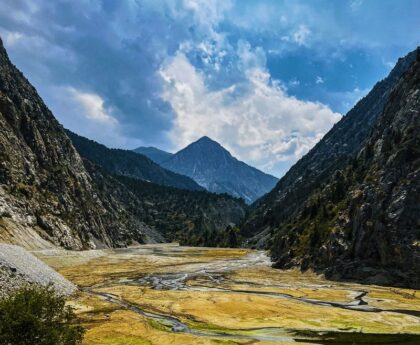Wildfires Ravage Western Canada, Highlighting Climate Change Crisis
Introduction
The western province of British Columbia in Canada has declared a state of emergency as wildfires continue to rage across the region. Thousands of people have been evacuated from the city of West Kelowna and its surrounding areas, while nearby Kelowna is also facing evacuations. The severity of the situation has led British Columbia Premier David Eby to state that the province is facing its worst wildfire season in history.
Simultaneously, the capital city of the Northwest Territories, Yellowknife, is also under threat from a massive blaze. While successful firefighting efforts have prevented significant progression, strong winds pose a continuing risk. Experts and officials attribute the widespread wildfires to climate change, pointing to the impact of drought and high temperatures on fire intensity.
The Severity of the Wildfire Crisis
The current wildfire season in Canada has seen more than 1,000 active fires burning across the country, making it the worst-on-record. The fires in British Columbia and Yellowknife underscore the severity of the crisis, as thousands of people are being forced to evacuate their homes and entire communities are at risk. The destruction of property and infrastructure further emphasizes the urgent need for action to address the underlying causes.
Climate Change and Wildfires
The link between climate change and the increasing intensity and frequency of wildfires is well-established. The combination of longer, hotter, and drier summers has created optimal conditions for wildfires to thrive. As temperatures rise and precipitation levels decrease, vegetation dries out, providing ample fuel for fires to spread rapidly.
The effects of climate change on wildfire behavior are undeniable. The fires in Canada are a clear consequence of global warming and the disruption it is causing to ecosystems. It is crucial to recognize that the severity and scale of the current crisis are not isolated incidents but part of a larger pattern that is expected to worsen in the coming years.
Response and Preparation
The immediate response to the wildfire crisis must prioritize the safety and well-being of affected communities. Evacuation efforts, emergency services, and firefighting capabilities need to be scaled up to effectively combat the fires and protect vulnerable populations. Cooperation and support from neighboring provinces and territories are also essential to ensure a coordinated response.
However, it is crucial to recognize that addressing the root causes of the crisis is equally important. Governments at all levels must prioritize climate change mitigation and adaptation strategies. This includes investing in renewable energy, implementing sustainable land management practices, and reducing greenhouse gas emissions. Additionally, efforts to ensure adequate resources for firefighting and emergency response should be increased, enabling prompt and effective action.
Public Awareness and Education
The wildfire crisis highlights the urgency of public awareness and education surrounding climate change and its impact on our environment. The public must be informed about the connections between their everyday actions, global warming, and the devastating consequences we are witnessing. Education campaigns, media coverage, and community outreach programs can play a pivotal role in fostering a sense of collective responsibility and promoting sustainable practices.
International Cooperation and Climate Commitments
The severity of the wildfires in Canada should further galvanize international efforts to combat climate change. The crisis serves as a stark reminder that collective action is needed to curb greenhouse gas emissions and limit global warming. Governments and organizations around the world must strengthen their commitments under the Paris Agreement and work together to implement bold climate policies.
Conclusion
The ongoing wildfire crisis in western Canada is a stark reminder of the urgent need to address the impacts of climate change. As wildfires continue to ravage communities and landscapes, it is essential for governments, organizations, and individuals to take immediate action to mitigate and adapt to the effects of global warming. By prioritizing climate change mitigation, investing in sustainable practices, and fostering public awareness and education, we can work toward a future where devastating wildfire seasons are no longer the norm.

<< photo by Pixabay >>
The image is for illustrative purposes only and does not depict the actual situation.
You might want to read !
- The Enigma of Michael Jordan: Silence Amidst Larsa Pippen’s Revelations
- Are Larsa Pippen and Marcus Jordan Engaged? Exploring the Rumors
- The Impact of Jadeveon Clowney’s Signing with the Ravens: Potential Game-Changer or Underwhelming Addition?
- “Tropical Storm Hilary Strengthens: Will It Become a Hurricane?”
- The Destructive Path: Analyzing the Devastating Rabbit Fire Near Beaumont
- “Raging Diamond Fire Engulfs Scottsdale, Puts Homes at Risk”
- “Devastating Deluge: Escaping the Flames – A Glimpse into the Heartbreaking Exodus from Kelowna and Beyond”
- “Decoding the Gateway to the 2023 BMW Championship: Your Guide to Round 1”




